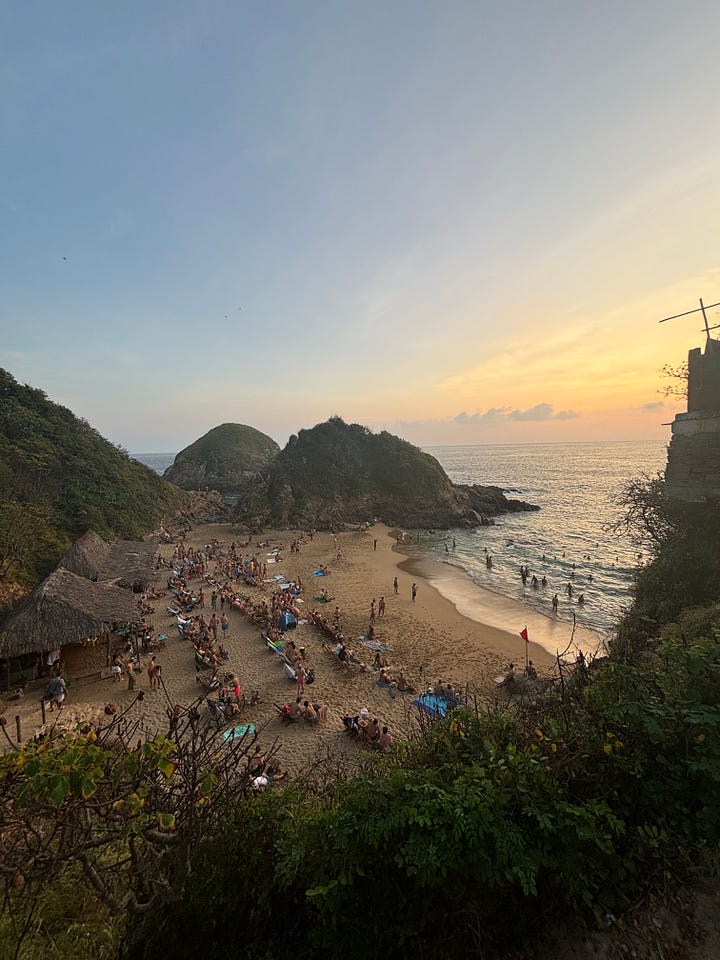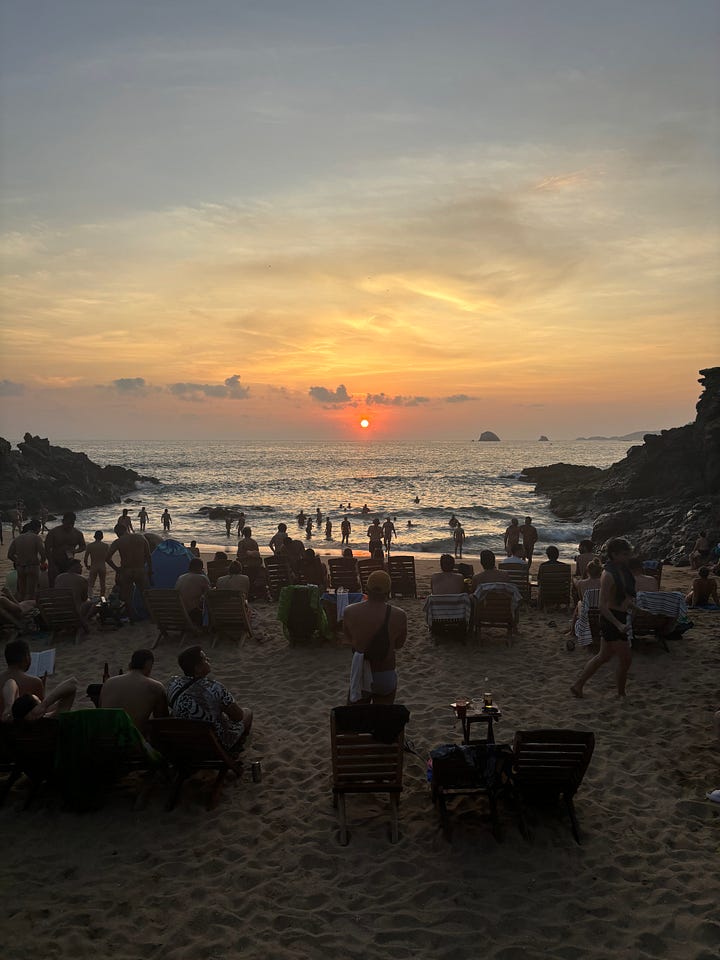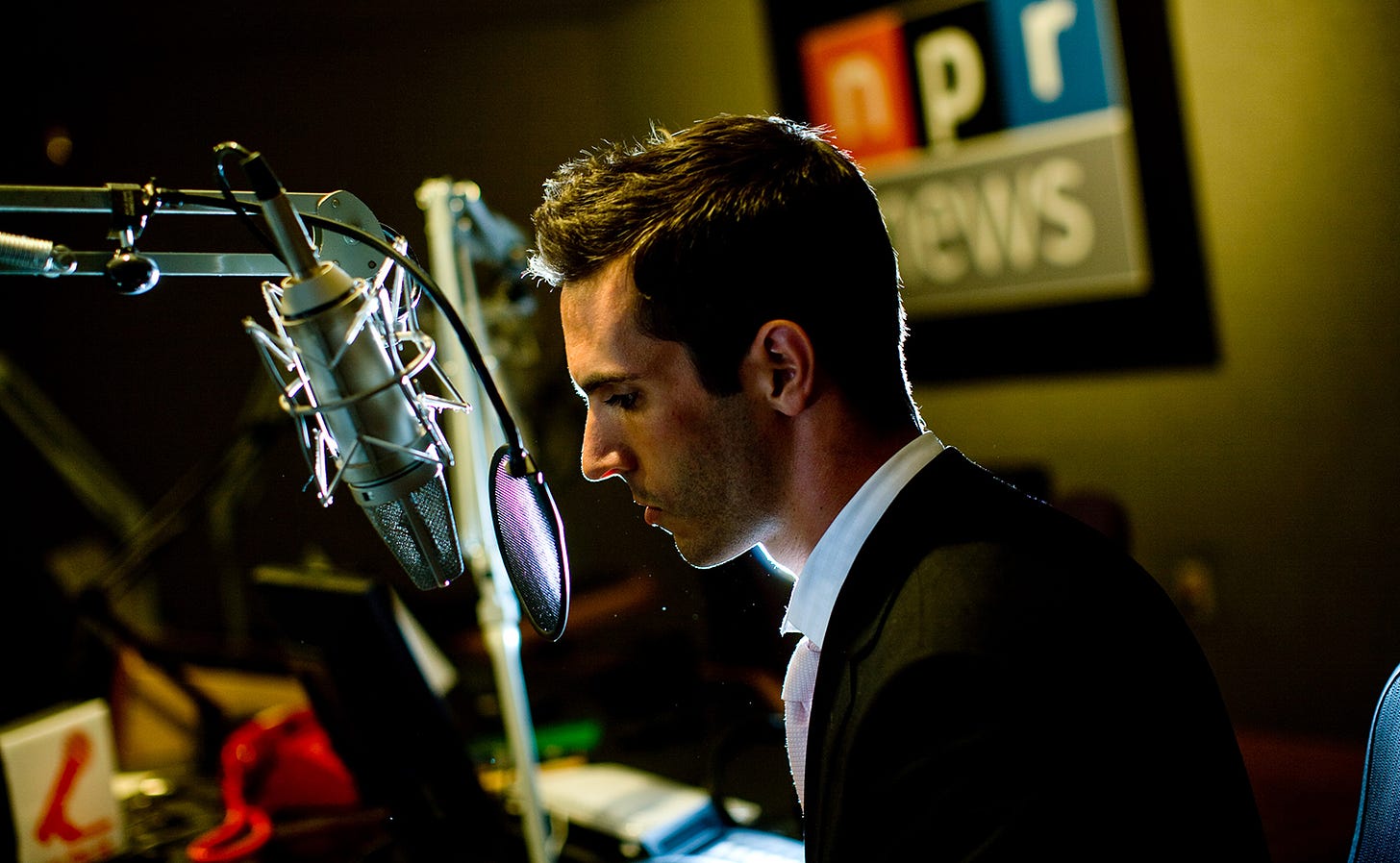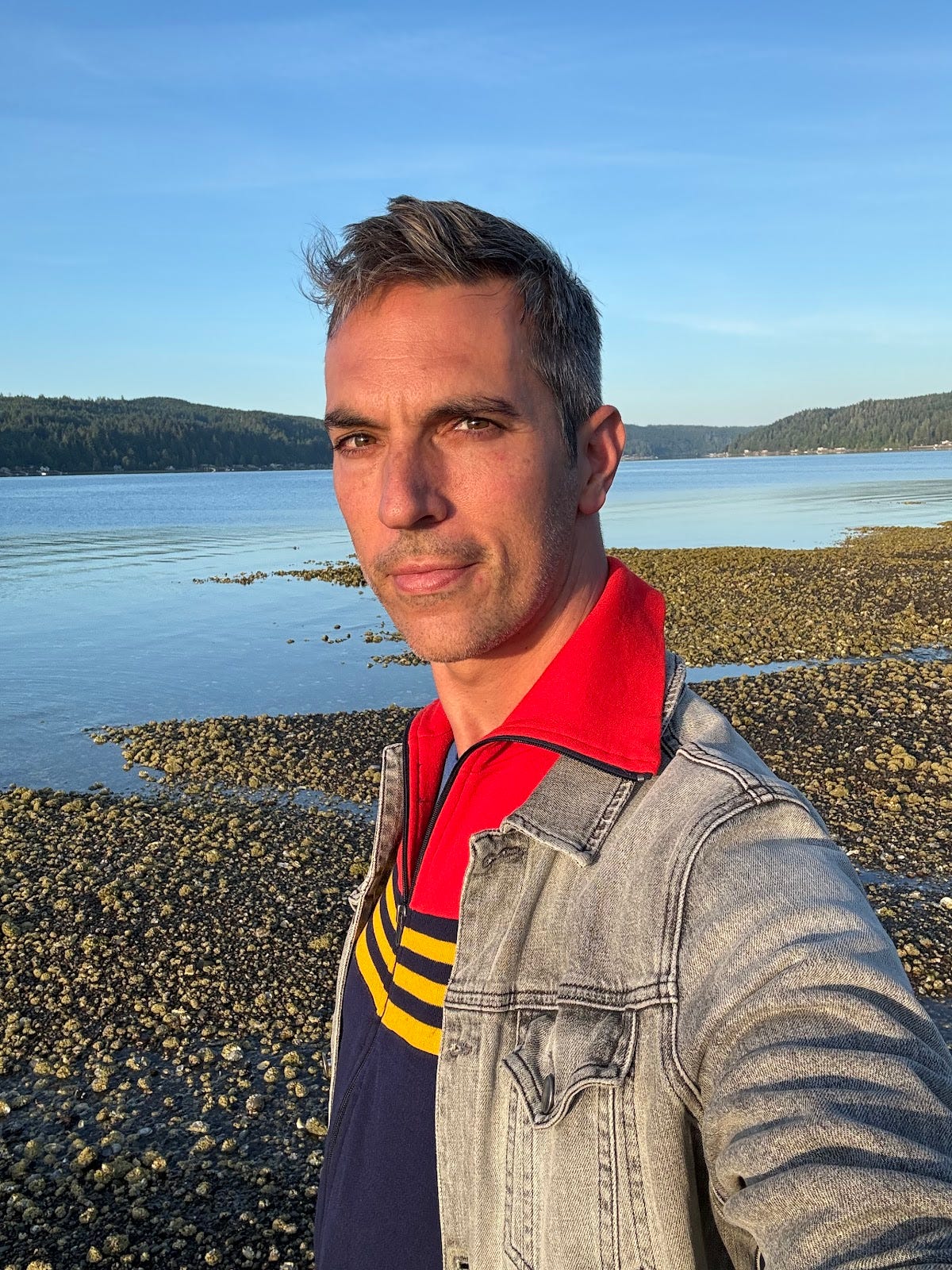Moving On
After nearly 25 years at NPR, it's time for a new adventure
The first time I walked into NPR headquarters was New Year’s Eve on the cusp of 2001. The Clinton administration was on its way out, and George W. Bush was preparing to take the oath of office. I had flown into Washington earlier that day and my internship for Nina Totenberg wasn’t scheduled to start until after the holiday, but I was eager to familiarize myself with the 20-minute walk I would make to my new job each morning.
I stood in the lobby at 635 Massachusetts Avenue NW and scanned the headshots lining the wall. What an odd experience; these were faces I hadn’t seen before, attached to voices I had known my whole life: Susan Stamberg, Scott Simon, Linda Wertheimer. I didn’t imagine that one day my voice would be known, much less as a host of the nightly news program that served as the soundtrack in my childhood home every evening while my mom made dinner.
When I became a host of All Things Considered in late 2015, I thought to myself, “I’ve never stayed in any role at NPR for more than five years. But hosting this show is such a dream job, I could imagine doing it for a decade.” That self-imposed timeline rested in the back of my head as I traveled the world covering refugee crises and wars, as I anchored live coverage of elections and inaugurations from our new headquarters on North Capitol Street, and as I interviewed some of my favorite artists and authors.
I’m proud to say I’ve never missed a deadline in my career. And as I mark a decade as an ATC host, it feels right to stick to this one.
My decision to move on has nothing to do with the challenges facing public radio, the news media, or the country. Those are real and profound, and I plan to continue engaging with them in meaningful ways. But they aren’t informing this transition.
I have always thought that hosting All Things Considered is like inheriting a family heirloom. The goal and responsibility is to keep it looking shiny and new without breaking it, until it’s time to hand it off to the next generation. If I’ve succeeded at doing that, it’s thanks to the many collaborators I’ve worked with—those whose voices you’ve heard and those you have not. I couldn’t begin to name them all, but I especially want to thank my cohosts over the last ten years: Robert Siegel, Audie Cornish, Kelly McEvers, Mary Louise Kelly, Ailsa Chang, Juana Summers, and Scott Detrow. Thank you for always having my back.


Last fall I found myself in a Oaxaca beach town, jumping waves in a secluded cove at sunset with strangers from around the world. Usually I would find that frightening. The ocean intimidates me, especially at dusk. But surrounded by other people diving over, under, and through the surf gave me courage. As a massive wave smacked me in the face, I thought—we can’t control the size or speed of what the world throws at us. All we can do is decide how to respond. Stand and absorb the blow like a wall, flow like water, ride the crest like a dolphin… Maybe we get knocked down, but then we look around and see others struggling beside us—bravely, awkwardly, but with similar commitment—and that gives us the courage to wade back out again.
The next night, laughing with new friends and jumping waves again in near darkness, I had another thought. I realized that this game doesn’t end with a “win.” The goal isn’t to defeat the tide, or to make the waves stop. This is a project that only ends when we decide that it’s time to walk away. The waves will keep crashing forever.
The news isn’t going anywhere. For the foreseeable future, the times we live in will remain unprecedented. Journalism doesn’t end with a checkmate or a tie-breaking goal. And I am reassured to know that, as I towel myself off, the newsroom full of people who have kept me going since I was an intern back in 2001 will keep jumping the waves, encouraging each other to dive back into the churn as the surf keeps crashing.
Working at NPR has been a wild privilege. Since I became a host of All Things Considered, I’ve kept the original 1970 mission statement from founder Bill Siemering taped in view of my desk. I especially love the part that says we “will encourage a sense of active constructive participation rather than apathetic helplessness.” Public radio’s ability to evolve and change without sacrificing that unshakable mission of public service is NPR’s greatest strength. As I start the next chapter of my own professional evolution, I can’t imagine an organization more uniquely prepared to deliver the kind of illumination, understanding, and joy that I have treasured my entire life—and that I will continue to depend on as a listener. The work of public radio is more important today than it has ever been. I plan to keep supporting it, and I hope you will too.
So what comes next for me? In the 25 years that I have been a journalist at NPR, I’ve accumulated lots of other job titles too: author, performer, speaker, teacher, even host of a reality tv show. I love doing all of those things and plan to keep wearing many different hats.
Short term, after I host All Things Considered for the last time on September 26th I’ll hit the road for a few weeks on tour with my favorite “little orchestra” Pink Martini. I’ve been a frequent guest singer with them for almost 20 years now, and touring with the band always feels like going to summer camp. You can find those dates, along with all my other upcoming public appearances, here.
There’s lots more to come, and I plan to use this newsletter to keep folks up to date on what I’m doing. If you want to keep hearing from me, please subscribe. Substack is a new platform for me, and I’m sure my approach to it will evolve. I don’t plan to offer much commentary on the news here. You’re probably more likely to hear about my garden, or about artists that I love, than about war or politics. I imagine you have some questions for me, so I’ll plan to do a live Q&A in the coming days. Keep an eye out for details on that.
I have always loved the intimacy of radio as a medium. When I speak into the microphone, I’m not orating to an audience of millions. It’s just me talking to you. So whether we have spent time together in your car commuting home from work, in your earbuds at the gym, or on your smart speaker as you cook dinner, I am grateful that you invited me to join you. Time is our most precious resource, and I am honored that you chose to spend yours with me. Thank you for listening.
-Ari



I met you a couple years ago when you spoke at a fundraising event for the NPR affiliate I work for (KCUR in Kansas City, MO). You were charming and friendly and greeted everyone with the same warmth that one would expect from someone who had shared a 20-year friendship, and we can’t thank you enough for lending your time and energy to our cause. Thank you for that - and thank you for doing the good work for these many years with NPR. Cheers to the future. Make it beautiful.
I will certainly miss you on ATC, you’ve made your mark & I’m happy to have been a listener. Congratulations & best of luck on your next chapter. Looking forward to seeing your garden & your journeys.
All the best!